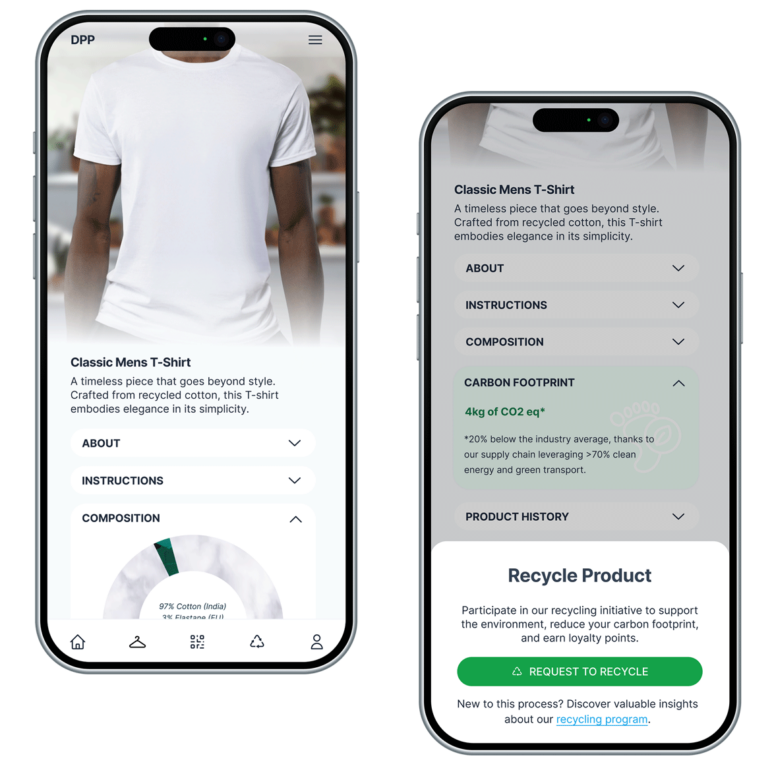At a Glance
The textiles industry is one in need of a transformative new circularity process
More than just a tool for verifying sustainable and responsible manufacturing inline with ESPR legislation and circularity initiatives – Digital Product Passports are a tool for enabling widespread business transformation.
DPP Impact
Digital Product Passports can store data relating to each product at a granular level, giving a holistic view of its whole lifecycle and environmental impact. The data DPPs contain can provide organisations with an immutable audit trail for compliance with upcoming legislation, as well as give valuable insight into an organisation’s supply chain operations.

Tackling Greenwashing
Sustainable Sourcing
Boosting Circularity
DPPs are mandated for all textile products made or sold within the EU by 2030.
The textiles industry is required to make significant changes.
DPPs enable organisations to satisfy the regulatory requirements that will be imposed by the ESPR, which mandates the implementation of DPPs by 2030. For organisations that want to future-proof their operations and gain a first-mover advantage, it would be best to start considering a DPP solution now.

Our Platform
Create, manage & integrate DPPs
- Capture key upstream data from across the sourcing, manufacturing and sales process
- Manage your product portfolio, from a birds-eye view to an individual, granular perspective
- Connect DPPs with your existing ERP or LCA system seamlessly






